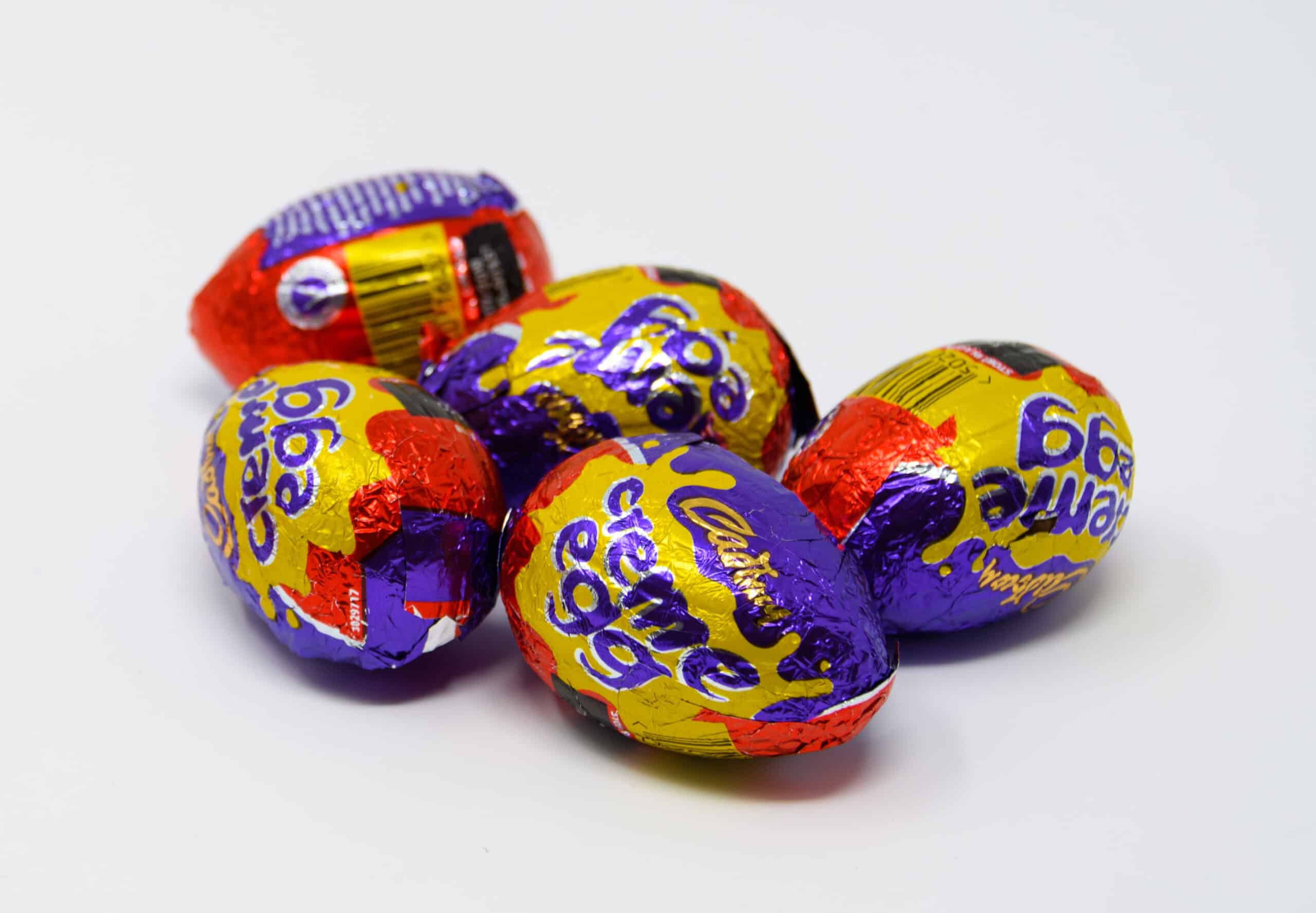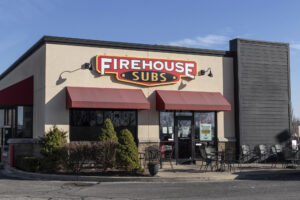
RogerUtting/Depositphotos.com
Cadbury Has Made a Major Change for the First Time in History. Here’s What Happened
January 23, 2025
Cadbury’s Creme Eggs and other chocolate treats have long been Easter favorites worldwide. Recently, however, the chocolatier made a major change to the packaging for one of its Easter products, and fans worldwide are wondering what’s coming next. Here’s what the company did.
Cadbury Easter Favourites Pouch Will Look a Little Different This Year
According to Metro, Cadbury has launched its first pouch made completely out of paper as part of this year’s Easter collection.
In an industry saturated with plastic packaging, the Easter Favourites Pouch — which includes Mini Cadbury Dairy Milk Eggs, small packs of Mini Eggs, and Creme Eggs — will be more environmentally friendly this year.
Cadbury isn’t the only candy company that has experimented with paper packaging. Nestlé’s Smartie products have also shifted to paper packaging to reduce plastic consumption.
“We’re excited to be bringing retailers and shoppers our brand-new Easter Favourites Pouch and our expanded range of shell eggs across a variety of brands this Easter, with something to suit all tastes and occasions,” said Charlotte Parkes, senior brand manager, in a statement to The Grocer. “We’re confident our varied Easter 2025 lineup will generate excitement among shoppers and help retailers bolster their seasonal offerings, as well as helping to boost their gifting and sharing sales.”
There’s also been a change in the chocolate formulation: The Winter Wonderland Bar famously combines milk and white chocolate at Christmas, and the new Dairy Milk & White Half & Half Ultimate Egg, which features creamy bits of milk and white chocolate, is based on a similar concept for Easter.
The Caramilk Egg is also new to the market, having debuted successfully in the United Kingdom. Until 2021, Caramilk was solely available in Australia and New Zealand; a slightly thinner version emerged on grocery shelves in England and Ireland.
No More Royal Warrant?
As popular as Creme Eggs and other Cadbury products are all over the world, there’s one place where the chocolates no longer get any major play: Buckingham Palace. Last month, the chocolatier lost its royal warrant after 170 years.
Queen Victoria handed the Birmingham-based chocolate company its first royal permit as a chocolate and cocoa factory in 1854. King Charles has since revoked the candymaker’s royal patronage.
The withdrawal of Cadbury’s royal warrant comes after the king was reportedly pushed by the campaign organization B4Ukraine to accept warrants from companies “still operating in Russia” during the invasion of Ukraine. B4Ukraine mentioned names such as Mondelez, which owns Cadbury, and Unilever.
While Cadbury’s warrant was revoked, Bacardi and Samsung were also listed on the B4Ukraine list but did not lose their warrants. According to Sky News, the decision was not directly related to Russia’s incursion.
“We are very proud of the long history our brands have supplying the royal household and of the warrants they have been awarded during this time, most recently by Her Majesty Queen Elizabeth II. The granting of royal warrants is a matter for the royal household,” a representative for Unilever said in a statement.
A Royal Warrant of Appointment is issued to individuals or businesses who have consistently provided goods or services to the royal household. A royal warrant grants the holder only the right to display the Royal Arms; they are not entitled to claim or suggest exclusivity of supply.
“Warrants may not be renewed if the quality or supply for the product or service is insufficient, as far as the relevant Royal Household is concerned. A Warrant may be canceled at any time and is automatically reviewed if the Grantee dies or leaves the business, or if the firm goes bankrupt or is sold,” the royal website explains.
Recent News








